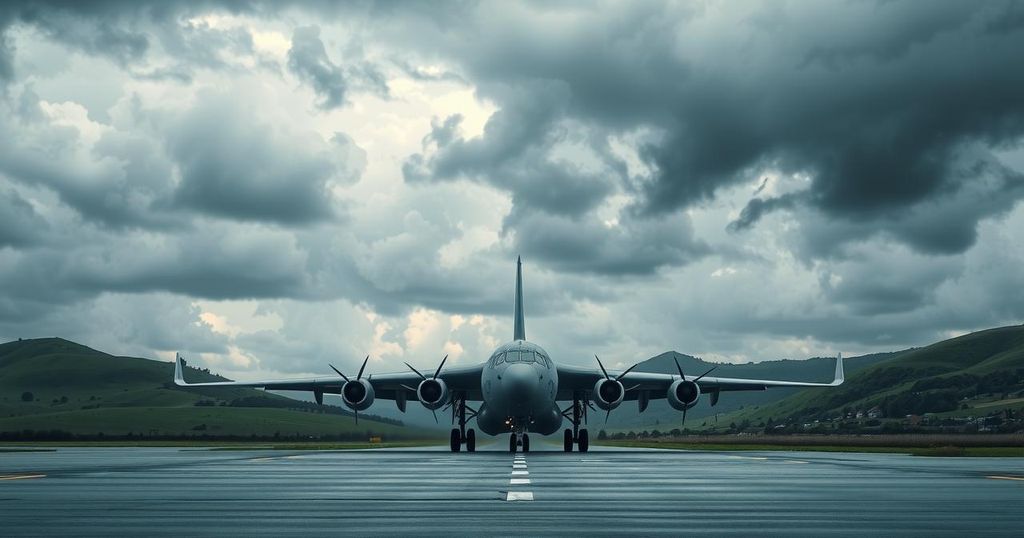U.S. Plans Controversial Deportation of Migrants to Libya on Military Flights

The U.S. could start deporting migrants to Libya via military flights as early as this week. This marks a controversial shift given past criticisms of Libya’s human rights violations. The specifics regarding the number and nationality of deported individuals remain unclear, alongside growing concerns about due process in such cases.
In a significant and controversial move, the U.S. government is reportedly planning to deport migrants to Libya using military aircraft, according to multiple officials. Sources indicated that this action could take place as early as Wednesday, marking a potential first for such deportations. However, those involved noted that plans could still shift before they materialize.
The ongoing situation has raised eyebrows, particularly given the U.S. has previously criticized Libya’s human rights record, including the “harsh and life-threatening prison conditions” reported by the State Department. There was no immediate response from the White House or other agencies regarding the proposed deportation plans, leaving many questions unanswered.
Who exactly would be deported remains unclear, as the exact number and nationalities of the migrants targeted were not specified. The Trump administration, critics argue, is pushing a stringent policy focused on deportation, having already removed around 152,000 individuals since taking office in January.
In an effort to bolster its deportation strategy, the administration has sought to encourage voluntary departures by imposing hefty fines and revoking legal statuses, while also looking to send migrants to prisons in other countries, including notorious facilities in Guantanamo Bay and El Salvador.
Secretary of State Marco Rubio recently indicated that the administration was exploring options beyond El Salvador for deportations. At a cabinet meeting last week, he stated, “We want to send you some of the most despicable human beings, will you do this as a favor to us?” emphasizing a desire to find locations as distant from the U.S. as possible for these deportations.
Reports suggest this exploration into deporting migrants to Libya has been ongoing for several weeks. However, it remains uncertain if a formal agreement with Libyan authorities has been established to accept deportees from the U.S. Nonetheless, the legal framework governing such deportations is murky, raising concerns over the potential lack of due process for those involved.
Since the 2011 NATO-backed intervention, Libya has struggled with stability, splitting into regions controlled by opposing factions. The current situation, with a recognized government in Tripoli under Prime Minister Abdulhamid al-Dbeibah and a rival authority in Benghazi, complicates any negotiations or agreements about deportations.
In related developments, the Supreme Court recently blocked the Trump administration from deporting a group of Venezuelan migrants accused of gang affiliations, highlighting some limitations the administration faces in implementing its aggressive deportation policies.
The U.S. might soon begin deporting migrants to Libya, despite serious human rights concerns surrounding the North African nation. As the Trump administration continues to push its stringent deportation policies, details remain fuzzy on the exact number and nationalities of migrants potentially impacted. The ongoing political instability in Libya poses significant challenges, while legal due processes for those facing deportation seem uncertain.
Original Source: www.hindustantimes.com







